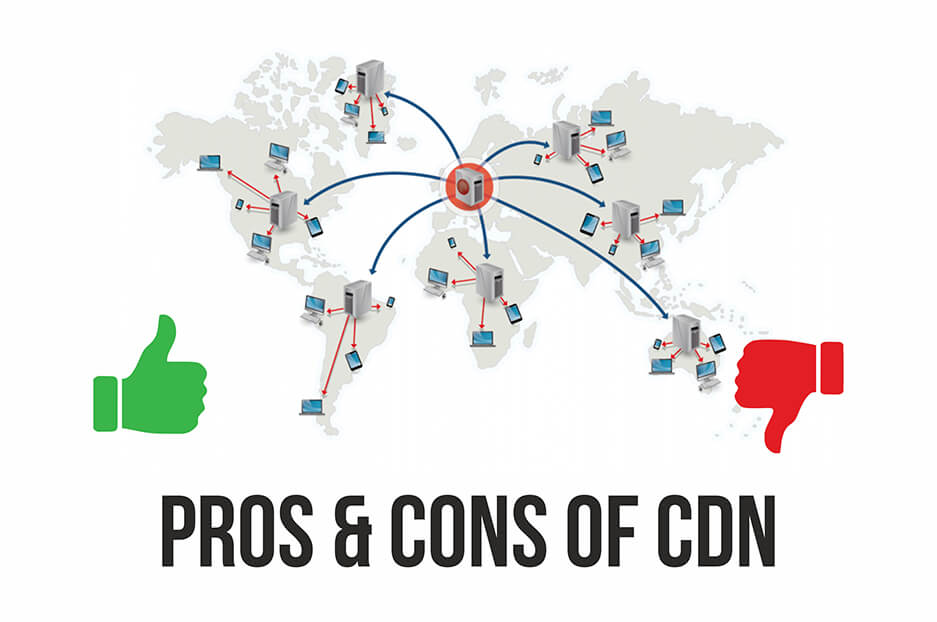Should I use a CDN or not? If you are asking yourself this question, our article will help you to clear it up. We have already provided you with interesting facts about CDN as well as CDN integration for Drupal sites. So we are now going to enrich your knowledge about content delivery networks with this article, which reveals the main advantages and disadvantages of this geolocation-based systems of distributed servers, whose mission is to deliver web content to end users.
The main advantages of CDN
100% availability and constant uptime
Downtime is always a disaster for both you and your users who can’t reach the content they want. So, you do server monitoring, and check whether your site is up or down, and hope with crossed fingers that your website’s server will be up and running, and your content will remain available to site visitors even in stressful situations. These risky situations could be periods of enormous user traffic, intermittent spikes, or server outages.
For example, if you have an ecommerce site, you have to deal with spikes in traffic during seasonal sales, because lots of customers visit your web resource at the same time. Without a content delivery network, all those billions of simultaneous user requests every second would overload the origin server and shut it down. With a CDN, this excessive traffic is distributed among hundreds of CDN’s servers. This way your origin server is protected, and you will never face any downtime.
High speed of content delivery
The network of CDN servers is spread over vast territory. Basing on geographic location, CDN delivers content from its servers which are the closest to a particular user or group of users. This makes the content’s path as short as possible. That’s why users receive your content as fast as possible. Your users don’t have to wait nervously, and they get a positive user experience.
Control of asset delivery
Asset delivery and network load are able to be controlled. Operators can monitor load statistics in real time. This allows them to detect active regions that are suffering from overload on the server and need to be prioritized. So operators can direct extra bandwidth to those regions and provide them with extra capacity.
The main disadvantages of CDN
Additional costs
Sure, you can choose one of a few free of charge CDN services, for example, BootstrapCDN, Coral Content Distribution Network, CloudFlare, or Incapsula. However, most of the content delivery networks ask you to pay a monthly fee, which depends on the number of requests, site visitors and resources you have on your site. Taking into account your hosting plan, general spending per month could be considerable. The costs will be justified, as you’ll be more safe, but it’s worth checking beforehand to make sure you can afford this.
Support issue
CDN is a very efficient and useful network, if it works smoothly, because there is always the issue of support availability. Most companies use third-party vendors to run and support their CDNs. If some big problems appear, there’s the question whether the operator will be able to solve them at once. How much time will it take to fix outages? Will the operator be able to prevent the same situation from happening again? Luckily, these issues don’t occur very often, but when they do, they cause troubles.
Geolocation may play tricks
Companies that offer content delivery networks have servers situated on territories of many countries all over the world, but nonetheless, they may not have them in your country or in a place where your main audience goes online. In these rare cases CDN is not advantageous as it takes longer for the page to render than if you keep all your resources on an original server only.
We hope our information was useful for you. If you have any questions, feel free to ask our Drupal company.

